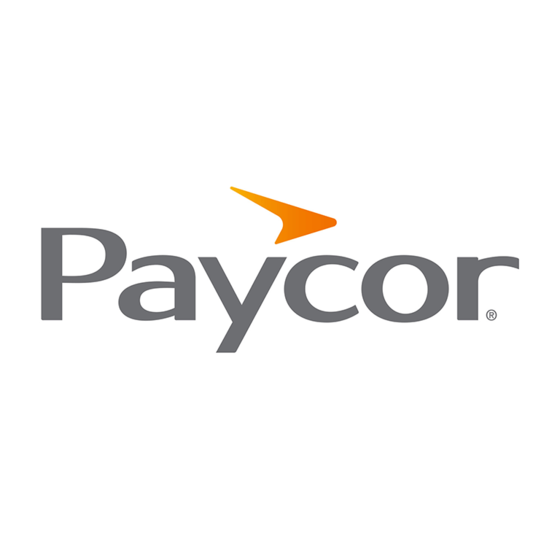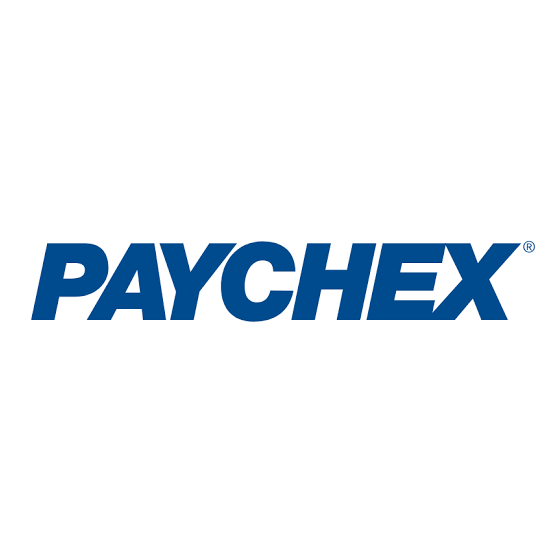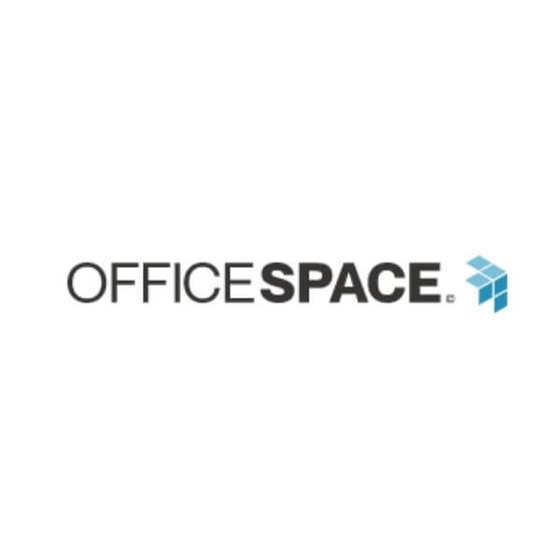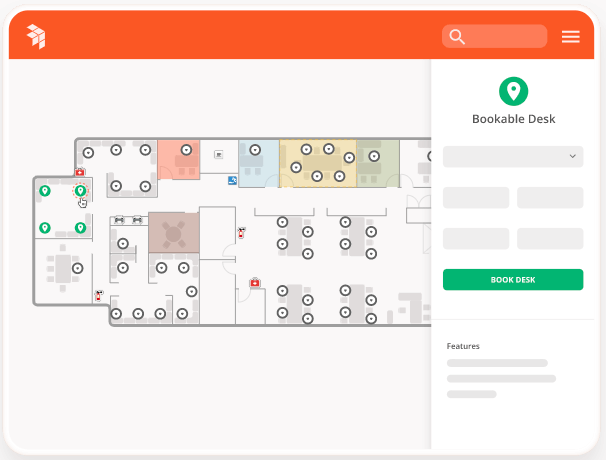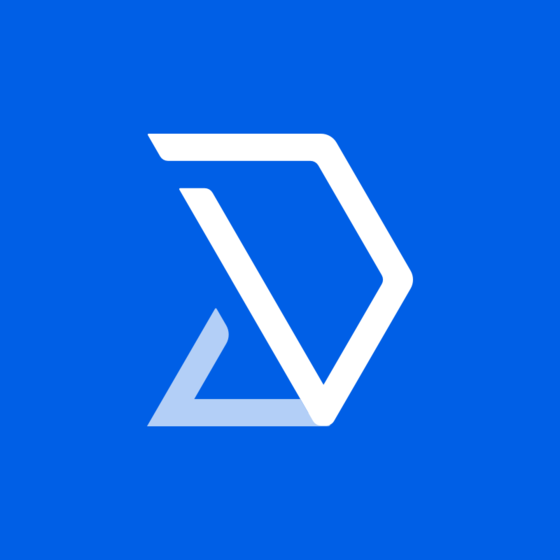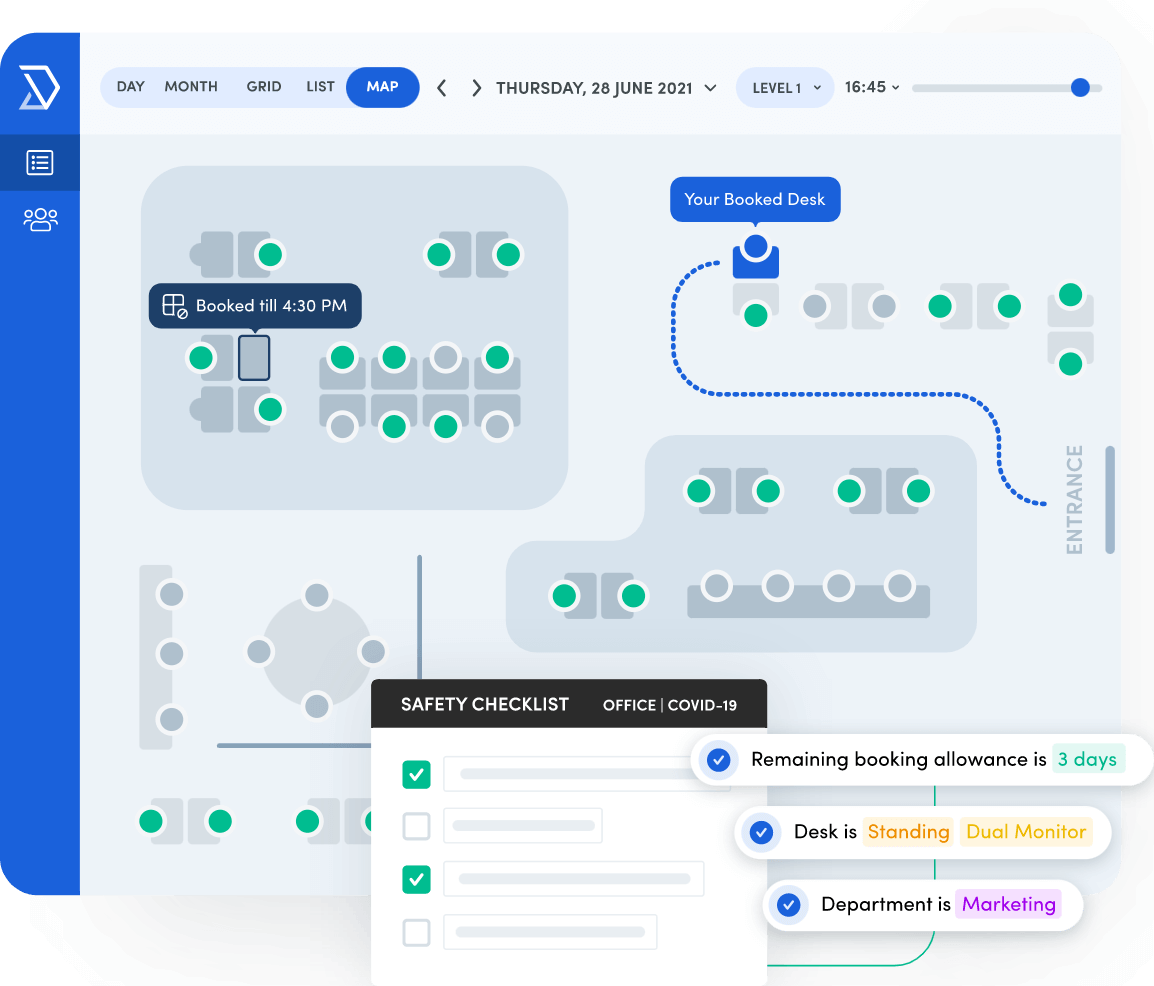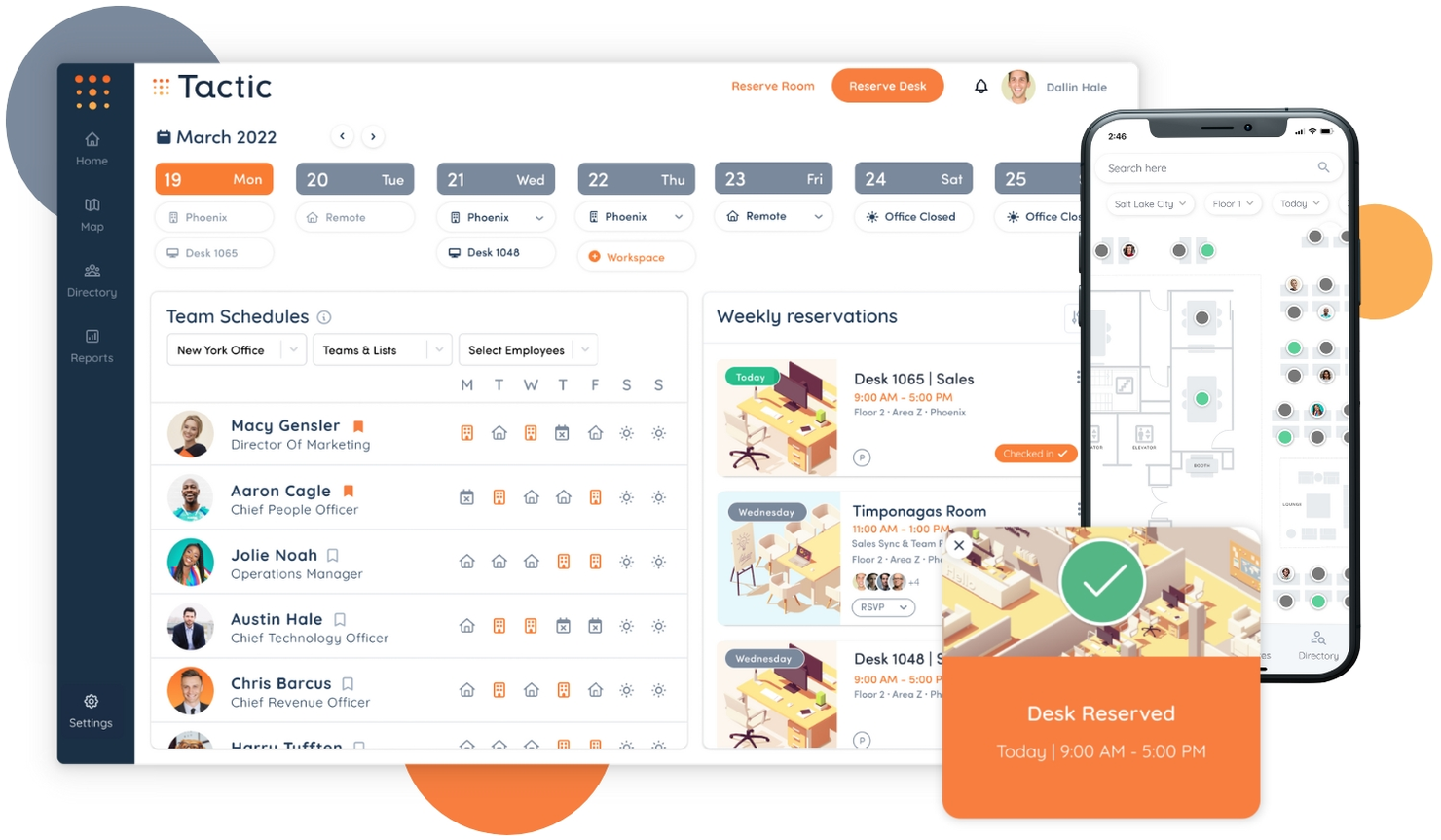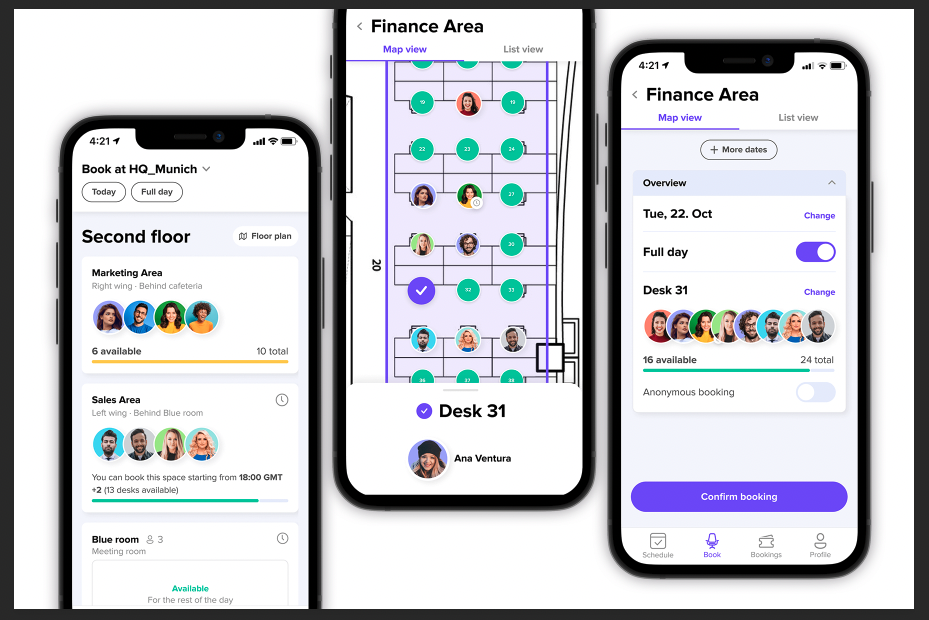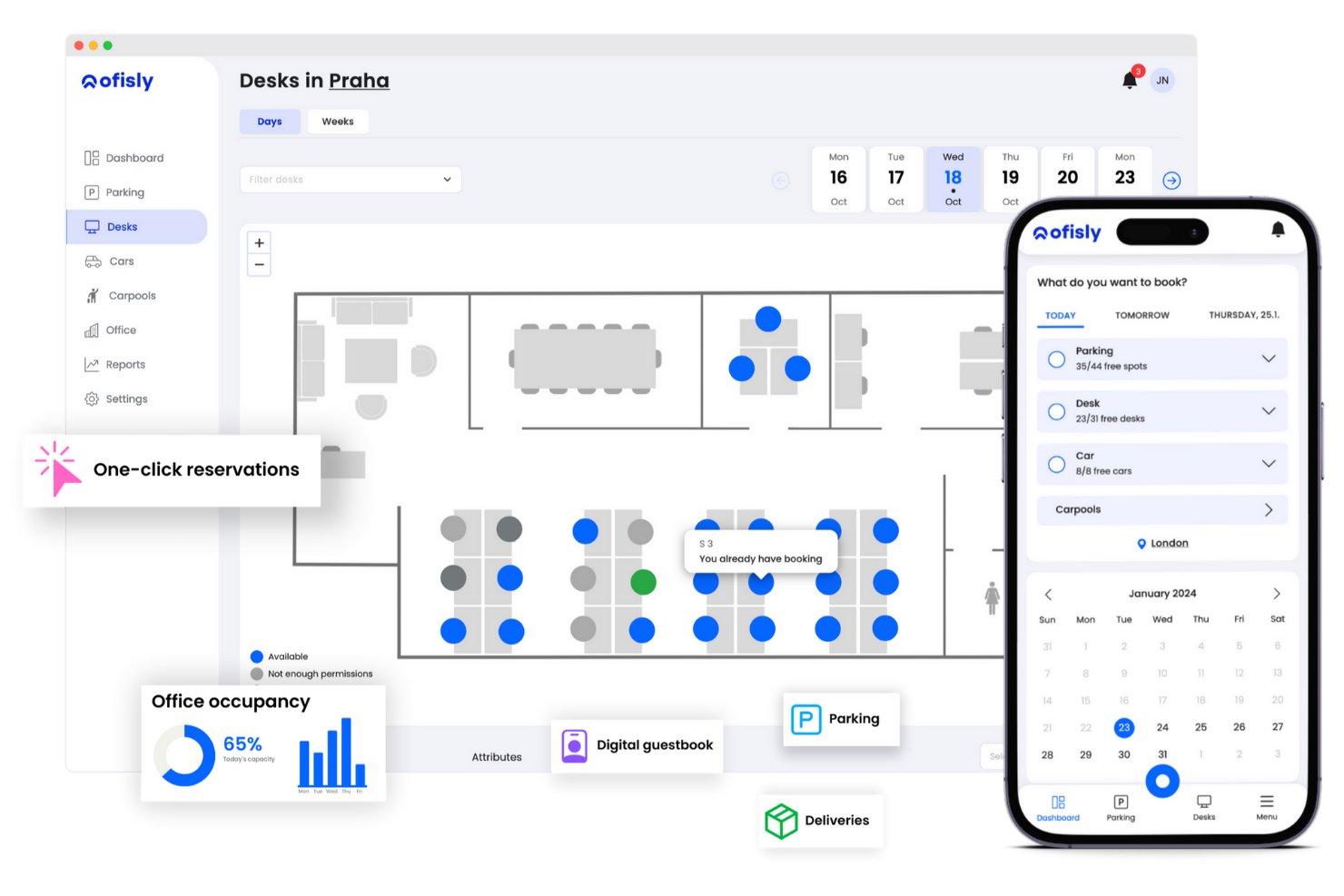10 Best Hot Desk Booking Software List
Here's my pick of the 10 best software from the 40 tools reviewed.
Get free help from our HR software advisors to find your match.
There are so many different hot desk booking software that making a shortlist of the best can be tricky. You want to allow employees to reserve and manage workspace in an office on an as-needed basis, optimizing space utilization and flexibility—and now need the right tool for your company and team. In this post, I share from my personal experience as an HR administrator using many different hot desk booking platforms with teams of all sizes, and outline my picks for the best hot desk booking software overall.
Why Trust Our Software Reviews
We've been testing and reviewing HR software since 2019. As HR professionals ourselves, we know how critical and difficult it is to make the right decision when selecting software.
We invest in deep research to help our audience make better software purchasing decisions. We've tested more than 2,000 tools for different HR use cases and written over 1,000 comprehensive software reviews. Learn how we stay transparent, and take a look at our software review methodology.
The 10 Best Hot Desk Booking Software: Pricing Comparison Chart
This comparison chart summarizes basic details about each of my top hot desk booking software selections. You can view pricing details and the availability of free trials or demos side-by-side to help you find the best software for your budget and business needs.
| Tools | Price | |
|---|---|---|
| OfficeSpace | Pricing upon request | Website |
| Kadence | From $4/user/month | Website |
| Skedda | From $99/month | Website |
| Tactic | From $2.50/desk/month | Website |
| deskbird | From $1.80/user/month | Website |
| Ofisly | From $1.40/user/month (billed annually) | Website |
| Deskfound | From $1/user/month. | Website |
| Tribeloo | From $3.33/user/month | Website |
| SwipedOn | From $19/month | Website |
| WorkInSync | From $2.50/user/month | Website |

Compare Software Specs Side by Side
Use our comparison chart to review and evaluate software specs side-by-side.
Compare SoftwareHow to Choose Hot Desk Booking Software
Hot desk booking software can help you manage your office space more effectively, providing a smoother and better experience for your hybrid employees. To help you figure out which hot desk booking software best fits your needs, you need to pinpoint your key users and document their specific challenges first.
As you work through your own unique software selection process, keep the following points in mind:
- What problem are you trying to solve - Start by identifying the challenges you're trying to overcome. This will help you clarify the features and functionality the hot desk booking software needs to provide.
- Who will need to use it - To evaluate cost and requirements, consider who will be using the software and how many licenses you'll need. In the case of hot desk booking software, you'll probably want access for your entire workforce, with special access for your HR administrators and other support staff. Once that's clear, it's also useful to rank the needs of your different users to identify the key priorities for your power users, managers, and employees, to ensure they're all met.
- What other tools it needs to work with - Clarify what tools you're replacing, what tools are staying, and the tools you'll need to integrate with, such as digital calendars, internal communication like Slack or Microsoft Teams, or your HR management system.
- What outcomes are important - Review the capabilities you want to gain or improve, and how you will be measuring success. For example, you may want to entice your hybrid employees to return to the office more frequently, replace your current clunky desk booking system, or make better use of your floor space so you can reduce (or sublet) unused physical space. You could compare hot desk booking software systems until you’re blue in the face but if you aren’t thinking about the outcomes you want to achieve, you could waste a lot of time.
- How it would work within your organization - Consider the software selection alongside your existing workflows and systems. Evaluate what's working well, and the areas that are causing issues that need to be addressed.
Remember every business is different — don’t assume that a hot desk booking system will work for your organization just because it's popular.
Best Hot Desk Booking Software Reviews
Below are my detailed descriptions of each hot desk booking software solution that landed a place in my top 10 shortlist. I’ve highlighted each system’s key features and explained why I included them in this list.
Any one of these systems could help you optimize the use of your office space and create a safe and productive work environment for your employees. Plus, there are 30 more desk booking systems below if you’d like additional choices to consider.
Best hot desking solution for advanced desk allocation usage data & analytics
OfficeSpace’s software supports hot desking, desk hoteling, free addressing (sensor activated check-ins), activity-based working, and booking neighbourhoods to keep team members closer together.
Why I picked OfficeSpace: Their user-friendly system works from all manner of devices and supports bookings via mobile app, touchscreen kiosk, desktop computers, or even from within Slack or Microsoft Teams. To help limit surface sharing, a touchless check-in feature is also included in their mobile app too.
The platform’s data analytics also aim to help with future demand forecasting by giving administrators access to usage and adoption data in their Insights Hub. Within the data dashboard you can identify seating preferences, track trends, and see which workstations go unused. This valuable data is intended to improve the flexibility of your hybrid workspace arrangements by optimizing how your desks are configured and used.
OfficeSpace Features and Integrations:
OfficeSpace includes tools for scenario planning to experiment with different layout changes. To dive even deeper into your data, their portfolio reports combine your lease information with your usage data to form real estate reports that show you where your budget is going to waste, allowing you to address those issues head-on.
Integrations are available with 35+ commonly used applications including Active Directory, ADP, LDAP, OneLogin, Oracle, PeopleSoft,
Pricing details for OfficeSpace are not readily available, but a free demo can be requested via their website.
Kadence
Best hot desk booking platform for coordinating your people, projects, and spaces
Kadence is a full suite of easy-to-use hybrid working software designed to improve the coordination of people, space and time to help your teams work smarter. Their next-generation operating system for hybrid working was designed to unleash the potential of people, powering a more positive way of working.
Why I picked Kadence: Their intuitive user interface and interactive floor maps (web and mobile versions) help your employees find and book available desks in seconds. Their platform also includes analytics on desk bookings, occupancy, or wasted bookings, to help you get a better understanding of your office space utilization.
Kadence Features and Integrations:
Features include an auto-release capability that eliminates no-shows and improves availability. Another unique team collaboration function is their “Personal Kadence” profile feature that helps office managers and teams get a clear view of employee’s personal preferences, and generates a list of who’s booked to come into the office on any given day to help with efficient meeting coordination.
Kadence integrates fully with Microsoft Teams, Outlook and Google calendars so your teams can easily find, and book available spaces all within the tools they already use.
Pricing for Kadence starts at $4/user/month. They also offer a free demo.
Skedda
Best hot desk booking platform with an interactive floor plan and full mobile access
Skedda’s customized booking system allows you to control the allocation of all your corporate spaces including desks, meeting rooms, studios, labs, or anything else you want to make reservable.
Why I picked Skedda: Their system is designed to remove the hassle of manually managing spaces by automating the process and enabling self-service bookings. This means you only have to set up your bookable items and automated user rules and permissions once. After that, your staff will be able to help themselves.
To ensure easy access, Skedda also has full-featured native apps for Android and iOS devices that work for users, as well as owners and administrators.
Skedda Features and Integrations:
Their floorplan maps are interactive, making it easy to view and make bookings directly from the map interface. Included in the floor plan is a time-of-day range-slider, so users can determine exactly when their favourite spot will be available again.
Users can also make reservations through their booking calendar, which allows platform admins to review bookings using day, month, grid (all listings) or list (per space or user) views. For pay-per-use venues, the platform also makes it easy to collect payments from users during their initial booking, which is saved for convenient reuse.
Integrations are available with commonly used calendar programs such as iCloud, Google Calendar, Microsoft Outlook (and Google Workspace and Microsoft 365 to generate meeting invites and video-conferencing links), and with communication tools like Microsoft Teams, Slack, Trello, Basecamp, Mailchimp, and many others.
Pricing for Skedda starts at $7 per month. A 30-day free trial of their premium version is available, as well as a free demo. They also have a freemium version with limited features for up to 5 bookable spaces.
Tactic
Best hot desk and meeting room booking software for coordinating in-office schedules
Tactic’s workplace experience software makes the office a more valuable piece of your company's hybrid work plan. This flexible platform provides a variety of tools that help bring your team together on their own terms.
Why I picked Tactic: With on-demand desk booking and meeting room reservations, team members can plan their preferred hybrid work schedule at the beginning of each week. Using the interactive office map, employees can see which days their team members will be in the office, allowing them to easily coordinate meetings and events, and facilitate in-person collaboration.
Tactic Features and Integrations:
Tactic's features are designed to ensure a safe working environment for all. Their system includes optional health check-ins for office visitors, capacity management tools, and detailed analytics to support contract tracing as needed. On top of all that, the system can also track the vaccination status of your workers—a modern requirement for certain industries.
And the safety features don't stop there. With Tactic's visitor management tools, you can provide guests with a delightful digital check-in process, allowing you to easily collect their information, photo, and necessary signatures. Tactic puts a heavy emphasis on their user experience to eliminate common technology frustrations.
Integrations are available with many popular scheduling and communication apps, such as Slack, Google Calendar, Microsoft Outlook, and Zoom. All features are also available through their Android and iOS apps.
Pricing for Tactic starts at $2.50/desk/month. All plans include a 14-day free trial, no credit card required.
deskbird
Best desk & room booking solution for integrating with MS Teams & Outlook
deskbird offers a highly intuitive and flexible solution for booking desks and other resources that can be easily accessed by your team members from anywhere. With just two clicks, you can easily reserve a space, whether it's a desk, meeting room, parking spot, or any other facility.
Why I picked deskbird: I included their system because I found their integrations helpful and easy to use. You can book using Microsoft Teams, Slack, their web platform, or their mobile app. In addition, their software integrates with Outlook and Google calendars, so you can avoid scheduling conflicts and get real-time analytics. Another great feature is the HRIS integration, which offers users a seamless experience while enhancing data accuracy for optimized workforce and office analytics.
deskbird Features and Integrations:
In addition to their desk booking tool, deskbird also offers health policy reviews before checking in, check-ins via QR codes, and incognito bookings if you want your trip to the office to stay anonymous. The platform administrators can keep track of space utilization data, assign specific zones to teams, and limit access to essential areas whenever necessary. On top of that, deskbird provides a handy integration with HR systems. This integration streamlines absence tracking, offering users a seamless experience while enhancing data accuracy for optimized workforce and office analytics.
Integrations are available with numerous calendar programs, communication tools, and active directory systems. Additionally, they offer a mobile application for Android and iOS devices and HRIS platforms, such as Bamboo HR, WorkDay, Personio, Sage, Factorial, HiBob, Rippling, and Sap Success Factors.
Pricing for deskbird’s workspace booking tool starts at $1.80/user/month. They also offer a 14-day free trial with no credit card or other strings attached.
Ofisly
Best flexible booking platform for easy customer onboarding for office managers
Ofisly is a hot desk booking and office management tool that offers a range of features to assist office managers in streamlining workspace operations and enhancing managerial efficiency. It provides a system for employees to book desks, parking spaces, and shared cars, as well as to organize carpools.
Why I picked Ofisly: Ofisly allows for flexible booking options, enabling users to select desks based on specific attributes and manage their reservations through a user-friendly interface. It incorporates the use of QR codes to facilitate easy tracking of desk usage and provides an overview of office occupancy, which can help in reducing operational costs. The tool also supports hybrid work models by offering a scheduler for attendance and providing data on office utilization.
One detail that sets Ofisly apart from competitors is the ease of its customer onboarding process. Ofisly eliminates the need for time-consuming sales calls, allowing companies to independently onboard and start using the platform promptly.
Ofisly Features and Integrations:
In addition to desk booking, Ofisly can also help users book parking spaces, which helps manage limited parking resources and ensures fair access for all employees, as well as company cars, which includes a logbook for tracking car usage. Ofisly also facilitates carpooling arrangements among employees, which can reduce commuting costs and environmental impact.
Ofisly also features a package register for logging deliveries and parcels, incident reports, office notices, which can be used to communicate important information to all employees quickly and efficiently, a hybrid scheduler, which allows employees to schedule their in-office and remote work, and a guestbook where guests can easily check-in and provide necessary information on a tablet, while the system automatically notifies their hosts.
Integrations include Google Calendar, Microsoft Outlook, Google, Slack, and Microsoft.
Pricing starts from $1.40/user/month (billed annually). A 14-day free trial is also available.
Deskfound is a Slack-based space management software tailored for a hybrid workforce. It allows employees to find the appropriate workspace, view floor plans, and book desk reservations from an easy-to-use, centralized platform or their existing Slack program.
Why I picked Deskfound: The cloud-based software enables supervisors to strategically assign desks to different employees, evaluate seating arrangements, and manage available workspace for a designated number of days or even weeks. It allows employees to manage work desks across multiple locations, view workspace status & availability, and schedule reservations for dedicated and temporary desks in offices.
Deskfound Features and Integrations:
Features include the ability to view desks by area, book permanent or hybrid seats, and update reservations by simply using the built-in drag-and-drop user interface. In addition, the software enables users to easily track each team’s location, configure user access rights, set up the software’s contact tracing functionality, and manage other critical tasks within a unified system. Users can use QR codes to scan desk labels and ensure the visibility of seating arrangements and locations.
Integrations are available with Slack and other third-party applications, including Google Calendar, Google Maps, and Google SSO.
Pricing starts from $1.00/user/month. A free trial is available for the first 10 users.
Tribeloo
Best for creating customized spaces and managing multiple locations
Tribeloo is a hot desk booking software that offers an array of features to help you manage your workplace and support in-person and hybrid collaboration on your team.
Why I picked Tribeloo: This is an effective desk and workspace booking software that allows you to define 'neighborhoods' and other unique workspace divisions. You can also manage multiple locations and set specific booking rules for these different locations. For example, you can add maximum capacities for shared spaces or add access permissions to certain employees or teams.
The software provides a visual floorplan for employees to book desks and rooms through. It allows you to set up policies and safety screenings for employees to read and agree to when they book spaces. Employees can also add team members to their group to see who's in and out of the office, and add conferencing to meetings they're booking with hybrid attendees.
Tribeloo Features and Integrations:
Features include visual floorplan, desk and room booking, assigned desks, multiple site management, custom areas and wings, special requests, pre-screening forms, and analytics and reporting tools.
Integrations include Google Calendar and Outlook Calendar, so your team can book desks and rooms directly from the platforms they use already.
SwipedOn
Best for ease of use desk booking and full hybrid workplace management
SwipedOn is a hybrid workplace management software that provides visitor management, employee sign-in, and resource and hot desk booking functionalities.
Why I chose SwipedOn: The thing that stood out to me about this software was its automated and simplified sign-in capabilities. Visitors and employees alike can sign in when they arrive at your office using their own device or an iPad at your reception. Employees can book desks, parking spaces, equipment, and other resources through the platform. It's real-time interactive maps show which spaces are available, letting employees book spaces and tools easily.
SwipedOn Standout Features & Integrations
Features include interactive maps that show real-time desk availability, and the ability to segment desks for specific groups, such as teams or departments. You can also set up QR codes for easy ad-hoc booking. Resource bookings can also be facilitated with the software, for things like equipment, parking spaces, and vehicles.
Integrations include Microsoft Active Directory, Azure Active Directory, Slack, and Microsoft Teams.
Pricing for SwipedOn starts from $19 per month, and a 14-day free trial is available.
WorkInSync
Best for hybrid workplace scheduling using virtual assistant software
WorkInSync is a hybrid workplace scheduling solution with all the standard features you’d expect for a hot desk booking application, and more.
Why I picked WorkInSync: The system helps managers stay on top of their hybrid employees by asking staff to fill out an Employee Preference Report once per week, indicating the days they would like to work from home or in the office. When staff are ready to make a booking, they can browse the interactive booking platform to find seats near other team members, and search for workstations with special features, including cubicles with ergonomic chairs, or dual monitors.
Within the same process, employees can also book parking spaces too. On the day of a booking request, the system automatically sends a health risk assessment questionnaire to ensure employees have no cold or flu symptoms before heading to the office.
WorkInSync Features and Integrations:
The platform boasts several unique features that I haven’t seen in other systems. To improve productivity, their software has integrations with Google Assistant, Alexa, and Siri so employees can reserve desk spaces during their drive to the office. Once they arrive, the platform’s Mask Detector feature asks employees to confirm they’re wearing a face mask by uploading a selfie of them wearing it.
After that, the next step is a temperature check using WorkInSync’s digital thermal hand scanner, which checks and records employee temperatures to ensure no fevers are developing. QR code scans also work in tandem with their Contactless Access Management module and Digi-Pass, ensuring contactless check-in for booked desks or meeting spaces.
Integrations are available with Microsoft Teams, Slack, Google Assistant, Microsoft Outlook, G-Suite Calendars, Microsoft ADFS, Okta, One Login, Honeywell EBI, and Siri.
Pricing for WorkInSync starts at $2.50/user/month. A free plan is also available for organizations with less than 50 employees. A free demo can also be requested via their website.
Other Hot Desk Booking Software
Here are a few more worthwhile options that didn’t make it into my top 10 shortlist for the best hot desk booking software, but they're still worth checking out:
- Robin
Best workplace management software for employee productivity features
- Envoy
Best hot desk system with a modular configuration and a linked health questionnaire
- SpaceIQ
Best hot desking software and space management suite with advanced wayfinding features
- FLYDESK
Best hot desk booking solution with weekly schedules and leave management
- Zynq
Best hot desk and office space management software for hybrid teams
- Cloudbooking
Best desk and room booking software with advanced real estate planning tools
- HotDesk+
Best multilingual hot desk booking software with built-in tools to help companies achieve net zero emissions
- Ronspot
Best 3-in-1 hybrid workplace reservation tool for booking hot desks, parking spots, and meeting rooms
- Condeco
Best hot desk booking tool for flexible desk workflows and team collaboration features
- Eden
Best hot desk and room booking software with a full workplace software suite
- NSpace
Best hot desk platform for advanced workplace utilization metrics
- Officely
Best hot desk booking tool for hybrid teams that use Slack
- Smartway2
Best hot desk solution for flexible integrations and a positive employee experience
- Othership
Best hot desk booking platform for optimizing office use and collaboration time
- Clearooms
Best for its pricing per desk and user friendly remote booking system
- Teem
Best hot desk & desk hoteling software for touchless mobile bookings and sanitation flags in between users
- YAROOMS
Best plug-and-play desk booking solution with digital signage & visitor management solutions
- Meetio
Best hot desking app for QR code check-ins and a find-a-colleague feature
- Smart Space
Best for wayfinding features, occupancy sensors, and advanced desk utilization metrics at a granular level
- Fischer & Kerrn
Best for monitoring desk usage via smart desk sensors, occupancy sensors, and ID card readers
- OfficeRnD
Best for employee engagement features and in-app communications
- MRI Workplace Central
Best for optimizing space utilization to reduce cost and inform strategic decision-making
- Space Connect
Best desk booking platform for automatic ‘booking conflict resolution’ and making bookings on behalf of others
- Flowscape Solutions
Best desk management solution for booking spaces with specialized equipment
- EMS
Best workspace booking system with integrated video conferencing and customizations for academic venues
- CXApp
Best workplace experience mobile app with wayfinding features, a desk availability map with interactive bookings, and contract tracing features
- SmartenSpaces
Best for amenity bookings, in-app vaccine status checks, and employee engagement features
- Fm:systems
Best desk management platform with pan-and-zoom floorplans, touchless check-ins, and QR code readers
- Gaia Workspace
Best workspace solution for advanced employee screening plus vaccine & COVID-19 test tracking
- Pronestor
Best for booking flexible and fixed desks in real-time, with an auto-release feature
Related HR Software Reviews
If you still haven't found what you're looking for here, check out these other related tools that we've tested and evaluated:
- HR Software
- Payroll Software
- Recruiting Software
- Employer of Record Services
- Applicant Tracking Systems
- Workforce Management Software
Selection Criteria for Hot Desk Booking Software
Selecting the right hot desk booking software involves a thorough understanding of how each functionality supports common organizational needs. My approach to choosing the best hot desk booking software is grounded in thorough research and my years of experience using meeting room booking software (the ancestor of hot desk booking software) to pinpoint the features that add a lot of value for administrators and employees alike. Here are the details I evaluated to decide on my final picks:
Core Hot Desk Booking Software Functionalities (25% of total score): To be considered for inclusion in my list of the best hot desk booking software, each solution had to offer the following basic functionalities first:
- Digital tools to manage desk reservations, plus other bookings for meeting rooms and other workspaces
- Tools to customize your booking policies for your business needs
- Mobile app functionality to enable bookings via mobile devices
- Detailed usage analytics for space optimization purposes
- Real-time updates and notifications to gauge desk availability
- Software integrations with digital calendars and communication tools
Additional Standout Features (25% of total score): To help me narrow in on the best hot desk booking software out of the numerous options available, I also took note of any unique features, including:
- AI-driven suggestions for optimizing space utilization
- Advanced health and safety monitoring and compliance tools
- Tools to set up team zones, neighbourhoods, or other space booking restrictions to strengthen team cohesion when physically in the office
- Interactive maps with wayfinding features for complex workspaces
- The ability to manage multiple office spaces within one platform
- E-commerce features that allow you to offer workspaces for rent
- Advanced physical hardware like digital signage and scannable QR codes that allow users to check in at physical spaces
Usability (10% of total score): To evaluate the usability of each hot desk booking system, I considered the following:
- An intuitive design that simplifies the booking process, including on mobile devices (both Android and iOS mobile devices)
- A clean, user-friendly interface with features to make bookings using interactive office maps or through drag-and-drop functionality
- Role-based access control that's straightforward to configure
Onboarding (10% of total score): To get a sense of each software provider's customer onboarding process, I considered the following factors:
- Quick setup processes and clear configuration guidelines
- The availability of training materials such as videos or interactive tutorials
- Support for migrating employee data into the new platform
Customer Support (10% of total score): To evaluate the level of customer support each vendor offered, I considered the following:
- The availability of multiple support channels, including email, phone, and chat
- The existence of a self-service knowledge base or other self-help resources to speed up troubleshooting
- The overall quality, responsiveness, and helpfulness of the support team during customer onboarding and post-purchase, as inferred from customer reviews
Value for Price (10% of final score): To gauge the value of each software, I considered the following factors:
- The availability of free trials or demos to test the software before purchasing
- Transparent pricing models that clearly explain which features are included at each level
- Tiered pricing plans that cater to different business sizes, from small to medium-sized businesses (SMBs) up to enterprise-level organizations
- Competitive pricing models that offer volume-based discounts for large-scale workspaces
Customer Reviews (10% of final score): Evaluating customer reviews is the final element of my selection process, which helps me understand how well a product performs in the hands of real users. Here are the factors I considered:
- Whether a product has consistently high ratings across multiple review platforms, indicating a broad level of user satisfaction
- Specific praises, criticisms, or trends in customer feedback that indicate the software's strengths or areas for improvement
- Whether customer feedback specifically mentions issues with ease of use, customer support responsiveness, or lacking features
By using this assessment framework, I was able to identify the hot desk booking software that goes beyond basic requirements to offer additional value through unique features, intuitive usability, smooth onboarding, effective support, and overall value for price.
Trends in Hot Desk Booking Software for 2024
Hot desk booking software saw a sharp rise in popularity during the pandemic, to match the needs of growing hybrid workforces. Even today, these products continue to evolve to meet the changing needs of hybrid office environments and to leverage new technological advancements, such as artificial intelligence (AI). Here's a summary of the current trends impacting the hot desk booking software space:
- Advanced Real Estate and Workplace Utilization Analytics: To help businesses manage their physical resources more strategically, developers are embedding complex analytics for desk allocation and real estate optimization. This innovation supports data-driven decisions, helping businesses maximize space efficiency and either reduce operational costs or monetize unused spaces.
- Package Delivery Management and Visitor Management Systems: The introduction of package tracking and sophisticated visitor management features represents a move towards comprehensive workplace solutions. This evolution is driven by the need for seamless operation within the modern office, ensuring security, efficiency, and convenience in handling visitors and deliveries.
(To learn more about how these features work, take a look at our in-depth review of Envoy, which explains it in more detail.) - QR Code Check-ins and Digital Signage: To streamline office navigation and improve visitor management, QR code check-ins and digital signage are being introduced. This approach simplifies access control and enhances the visitor experience, responding to the need for efficient and secure workplace management.
- Smart Desk Sensors and Occupancy Analytics: Leveraging technology for real-time space management, smart sensors and analytics are utilized to monitor desk usage. This trend is motivated by the desire to optimize workspace utilization, ensuring resources are effectively allocated and reducing wastage.
As the demand for flexible working arrangements remains strong, these technologies will continue to play a crucial role in supporting the dynamic needs of hybrid office environments. By leveraging hot desk booking software that offers advanced analytics, covers other office management features, and links up with sophisticated physical hardware, you'll be sure to improve the overall efficiency of your physical workplace.
What is Hot Desk Booking Software?
Hot desk booking software is a digital tool that enables employees to book and manage shared workspaces in an office, enhancing space efficiency and flexibility. Features include real-time desk availability, a reservation system, workspace management, and reporting capabilities for usage analytics.
The purpose of hot desk booking software is to streamline the reservation and management of shared office spaces, which is becoming more common in modern hybrid work environments.
Features of Hot Desk Booking Software
These are the key features I assessed when creating this list of the best hot desk booking software:
- Self-Service Bookings: The ability for employees to make bookings themselves, rather than bottlenecking requests through administrators or managers.
- Flexible Booking Options: The best platforms offer flexible workspace types (e.g., for desks, conference rooms, kiosks, parking stalls, and equipment) as well as flexible room scheduling and booking arrangements (e.g., hourly, all-day, multiple days, etc.) to accommodate a range of business needs.
- Detail-rich Floor Plans: Users should be able to visually locate the workspace they want to book from an accurate, and often interactive map. Some platforms even include wayfinding features that help users orient themselves within the workspace.
- Mobile Device Compatability: This is an essential feature, as it allows users to book from anywhere, anytime, while also enabling touchless check-ins via mobile devices. When considering this feature, ensure mobile device compatibility exists for both Android and iOS mobile devices.
- Team Zones or Neighbourhoods: This feature creates designated areas for specific teams or departments, ensuring better team collaboration while in the office. This feature is also useful for creating designated quiet zones.
- Search Tools to Find Colleagues: To further enhance productivity and collaboration, hot desk booking systems allow users to search for other employees to find out when they’re going to be in the office, and where they’ll be sitting.
- Health & Safety Features: This covers built-in health screening questionnaires, occupancy limits, social distancing parameters, data to assist with contact tracing, and automations that flag desks for sanitization in between users.
- Usage Metrics: The best systems keep track of usage data to support higher-level workspace analysis processes. This helps you quantify the cost of unused space so you can make informed decisions to further optimize your floor plan or reduce floor space altogether.
- User Permissions: Many tools let you set custom access permissions for different team members. This helps keep specialized or authorized areas bookable only for those with designated access.
- Software Integrations: Integrations with commonly used office programs like Outlook, Gmail, Slack, Microsoft Teams, digital calendars, and other cloud-based simplify the booking process and help your hybrid workers avoid scheduling conflicts.
Implementing hot desk booking software with these features can significantly enhance the management and reservation of desk spaces in a hybrid office environment.
Benefits of Hot Desk Booking Software
Hot desk booking software offers a sophisticated approach to modernizing your hybrid work practices and creating a smoother employee experience for staff who want the flexibility of varying their work location according to their preferences.
By implementing hot desk booking software, you can expect to gain the following benefits:
- Increased Flexibility and Autonomy: Ultimately, by giving employees the ability to choose when and where they'll be in the office, hot desk booking software empowers team members to be more autonomous and in control of their work experience. This, in turn, can lead to improved job satisfaction and productivity.
- Enhanced Space Utilization: By analyzing usage patterns, businesses can adjust their real estate needs accordingly, ensuring that no space goes to waste and potentially lowering expenses related to unused areas.
- Improved Collaboration: By allowing users to book desks and meeting spaces based on team location, hot desk booking software can enhance collaboration, fostering a more cohesive and dynamic work environment.
- Better Data-Driven Insights: Organizations can leverage workspace usage data to make informed decisions about office layout, required resources, and future workplace strategies, aligning them more closely with actual needs.
- Health and Safety Compliance: Providing a safe environment is always a top priority for employers and hot desk booking software can simplify this process by helping teams manage social distancing, track cleaning schedules, and ensure that health protocols are followed. These features both assist with health and safety compliance tracking and provide peace of mind for both employees and management.
These benefits demonstrate the significant impact hot desk booking software can have on an organization's operational efficiency, employee satisfaction, and strategic planning. By prioritizing flexibility, insight, and safety, businesses can create a more adaptive and resilient office environment.
Costs & Pricing for Hot Desk Booking Software
Pricing for hot desk booking software varies depending on the depth of features provided. While some systems offer a monthly price per user, others base their pricing on the number of bookable desk spaces you wish to manage, including some that offer packages or sets of bookable spaces for a flat fee.
To help you understand the pricing landscape more, I've compiled the average price ranges for each plan level into a comparison table.
Plan Comparison Table for Hot Desk Booking Software
| Plan Type | Average Price per User | Average Price per Desk | Common Features Included |
|---|---|---|---|
| Free | $0 | $0 | Basic desk booking, mobile access, and real-time availability |
| Basic | $10 - $20 | $5 - $10 | Enhanced booking capabilities, integration with calendar applications, automated reminders, and basic analytics |
| Professional | $20 - $40 | $10 - $20 | Advanced analytics, customizable booking rules, integration with additional office management tools, and support for multiple office locations |
| Enterprise | Custom Pricing | Custom Pricing | Personalized setup and support, advanced security features, comprehensive analytics and reporting, API access, and a dedicated account manager |
When considering which plan to choose, I recommend weighing your specific needs and the features you want to gain against the expected costs for each tier. It's important to select a plan that not only fits your current requirements but also has the flexibility to scale as your business grows.
Hot Desk Booking Software: FAQ
Do you have general questions about hot desk booking software and how it works? You’ve come to the right place! Here are some answers to commonly asked questions I’ve received on this topic:
What is hot desking?
Conceptually, hot desking is a modern-day workspace arrangement where employees no longer have a fixed desk. Unsurprisingly, it rose in popularity during the throws of the global pandemic, when workers stopped coming into the office in record numbers. This allowed some organizations to reduce their physical office spaces since the real estate was no longer being used.
The term “hot desks” refers to a first-come-first-served desk reservations system. In contrast, the term “desk hoteling” describes a system that requires reservations in advance. Thankfully, these flexible software systems can accommodate all types of workspace reservations.
What's the difference between hot desking and hoteling?
The distinction between hot desking and hoteling comes down to when the space is reserved. Generally, hot desking is booked on a first-come-first-served basis. Since the systems update in real-time, you can show up at your office unexpectedly, and quickly book yourself a workstation depending on what’s available at that time.
Desk hoteling follows the same concept, but the spaces are reserved in advance. A true hoteling system may also have a gatekeeper, such as a receptionist, ticketing, or a visitor management component. You may need to check-in or complete a health assessment prior to accessing your space.
The great thing is, as a user, it doesn’t matter if you want to book a hot desk or a hoteling space. These software systems will offer you both types of bookings, depending on your needs. So you don’t need to worry about this distinction too much.
However, if you’d like to get into the nitty gritty details, this article lays out the difference between hoteling and hot desking very clearly.
Just how common is hybrid working?
As the global pandemic continues its ebb and flow, hybrid working has risen as the go-to workplace model of the times. Wondering just how common it is? Here are some interesting hybrid work stats:
- 80% of survey respondents expect to work from home a minimum of 3 times per week
- 63% of high-growth businesses are already using hybrid work models
- 66% of executives report considering reorganizing their office spaces to accommodate hybrid work
Accenture recently surveyed 9,000 workers and found that 83% of workers prefer a hybrid work model instead of working in the office 5 days per week.
With that many employees shifting between home and office work locations, it makes sense to invest in technology that organizes the process and captures useful data at the same time.
What are some tips for introducing hot desking?
If you’re new to the idea of hot desking, these tips will help you get started on the right foot:
- Create a hot desk policy: Whenever you’re introducing a new concept to your workforce, you’re bound to receive a flurry of follow-up questions from your employees. To mitigate the Q&A flood, I recommend creating a Hot Desk Policy that spells out the rules and answers all the most likely questions upfront.
- Make your sanitization policy clear: If you’re able to hire a cleaning service to clean in between each hot desk’s use, definitely go for it. However, if your team is smaller and has lighter needs, you could also consider supplying each workstation with their own set of disinfectant wipes and hand sanitizers, and ask your staff to sanitize at the beginning and end of each use, to ensure the space is germ-free.
- Set up department or team-based zones: This involves designating specific areas on your floor plan for individual departments to use. By keeping team members in the same zone or “neighborhood” when they’re working in the office, you’ll improve your team’s in-office productivity and strengthen the bond between department members, improving your company culture.
- Offer specialized equipment as needed: You may have some employees with different workstation needs than others. These may include special lighting, ergonomic chairs, an ergonomic keyboard or mouse, or workstations with multiple computer screens. Mark these specialty options in your hot desking solution, and ensure your employees know they are available.
- Offer lockers for storing personal items: Some employees may want to have personal items on their desk while they work. This could include things like personal photos, preferred stationary or office supplies, or even an ergonomic mouse. Rather than asking them to lug these items from home each time they want to work from the office, offer staff the ability to store these items in personal lockers instead.
- Find a hot desking solution that works with your existing tech stack: You’ll get the most out of your hot desking program if the booking process is easy for your staff to navigate. Try to find a solution that integrates with the communication tools your staff are already using, whether that’s Slack, Yammer, Microsoft Teams, an internal intranet, or otherwise.
We also have tips on how to use your office space the most effectively if you need some help with that too.
Can hot desk booking software support multiple office locations?
Absolutely, many hot desk booking software can indeed support multiple office locations. Most modern solutions are designed with flexibility in mind, allowing organizations to manage desk bookings across various sites from a single platform. This means employees can book desks not just in their primary office but in any office location within the company’s network.
Being able to manage multiple office locations not only helps to facilitate a smoother experience for employees who travel between sites or work remotely part of the time. It also streamlines operations and enhances workspace utilization across all your locations, making it easier to manage a dynamic and flexible working environment.
How does hot desk booking software ensure compliance with health and safety regulations?
Hot desk booking software can help ensure compliance with health and safety regulations by allowing organizations to monitor and control the occupancy levels of workspaces, and ensure that social distancing guidelines can be adhered to. This can support a smoother and safer return to work, and shows staff that you’re putting their wellbeing at the forefront.
Additionally, some of these systems can facilitate contact tracing efforts by keeping records of who has booked and used specific desks on particular dates. They can also be configured to block off certain desks to maintain safe distances between employees and to prompt users with health and safety checklists or guidelines when making a booking. This proactive approach helps in creating a safer workplace environment, aligning with health guidelines and regulations.
Are there any industry-specific solutions for hot desk booking?
Yes, there are industry-specific solutions for hot desk booking, designed to cater to the unique needs of various sectors like:
- Tech
- Finance
- Healthcare
- Creative industries
- And more
These specialized solutions often include features tailored to the operational flow and compliance requirements of each industry, such as enhanced security for sensitive sectors or more collaborative spaces for creative fields. It’s all about finding a system that aligns with your industry’s specific workspace management and employee needs.
Tips for Selecting the Best Desk Booking Software for You
Feeling overwhelmed by all the options above? I'm happy to give you some tips. Finding the best hot desk booking system for you does take a little bit of research, but that's why I've created this list for you.
Here are 10 tips to help you hone in on the best desk booking software for you:
- Choose software with a user-friendly interface to ensure it's easy for all your users to make desk bookings.
- Look for a system that offers flexible booking options, such as daily, weekly, or monthly reservations, to give your organization more flexibility.
- Ensure the system you pick works on mobile devices, including Android, Windows, and iOS devices, for your employees' ease of use.
- Consider whether each system integrates seamlessly with other cloud-based applications your company is already using, such as Google Workspace or Microsoft 365. (If native integrations are not available, an API is also useful.)
- Review how quickly the system stores and updates data in real-time, to avoid booking frustrations by your staff.
- Dig into what type of usage analytics are included, if you have advanced space management or optimization needs.
- Find out if the system can be customized to your organization's unique needs, or if it's a one-size-fits-all software structure.
- Review the data security and privacy safeguards for your employee data to make sure they are compliant in your local jurisdiction.
- Find out whether the software is scalable if the needs of your organization grow. For example, how easy is it to add more coworking spaces to your desk booking system if you need to?
- Evaluate the cost of each desk booking system you're considering to make sure it aligns with your budget. Remember to factor in the number of users you may have in the future if your organization expands.
Other Workforce Management Software Reviews
While the hot desking trend certainly isn't going away, there are other types of software that can help you optimize your workforce management practices even more. To save you hours of digging around, take a look at these other specialty software lists instead:
- Office Space Management Software Systems
- Office Management Software for Core Functions
- Remote Employee Monitoring Software Systems
- Workforce Management Software
- Employee Scheduling Software
- Productivity Tracking Software
- Remote Working Software for Distributed Teams
- Time Tracking Apps
- Remote Collaboration Software for Hybrid Teams
- Team Communication Apps
- HR Analytics Software
- Workforce Planning Software
If you’re looking for more details to support your workforce planning efforts, I recommend reading our article on best practices for workforce planning.
Stay in Touch
I hope this article highlighted the value of using hot desk booking software to streamline space management in your workspace.
Before you go, I’d love it if you'd subscribe to our People Managing People newsletter. By subscribing, you’ll gain access to the latest articles covering a whole range of workforce management-related topics.
Related read: HR Software: What It Costs And How To Decide What’s Best For Your Company
Need Expert Help Finding The Right Human Resource Software?
We’ve partnered with the software comparison portal Crozdesk.com to help you find the right solution. Crozdesk’s Human Resource Software advisors can give you independent advice and shortlist software products that best fit your specific needs. Our partnership gives you free access to their tailored software selection advice and community negotiated discounts, taking the hassle out of the research process.
It takes just a minute to submit your requirements and they will give you a call at no cost or commitment. You’ll get custom product shortlists covering the top solutions that best fit your specific needs from their team of software experts (via phone or email) and they can even connect you to your choice of the selected vendors. To get started, please submit the form below:


